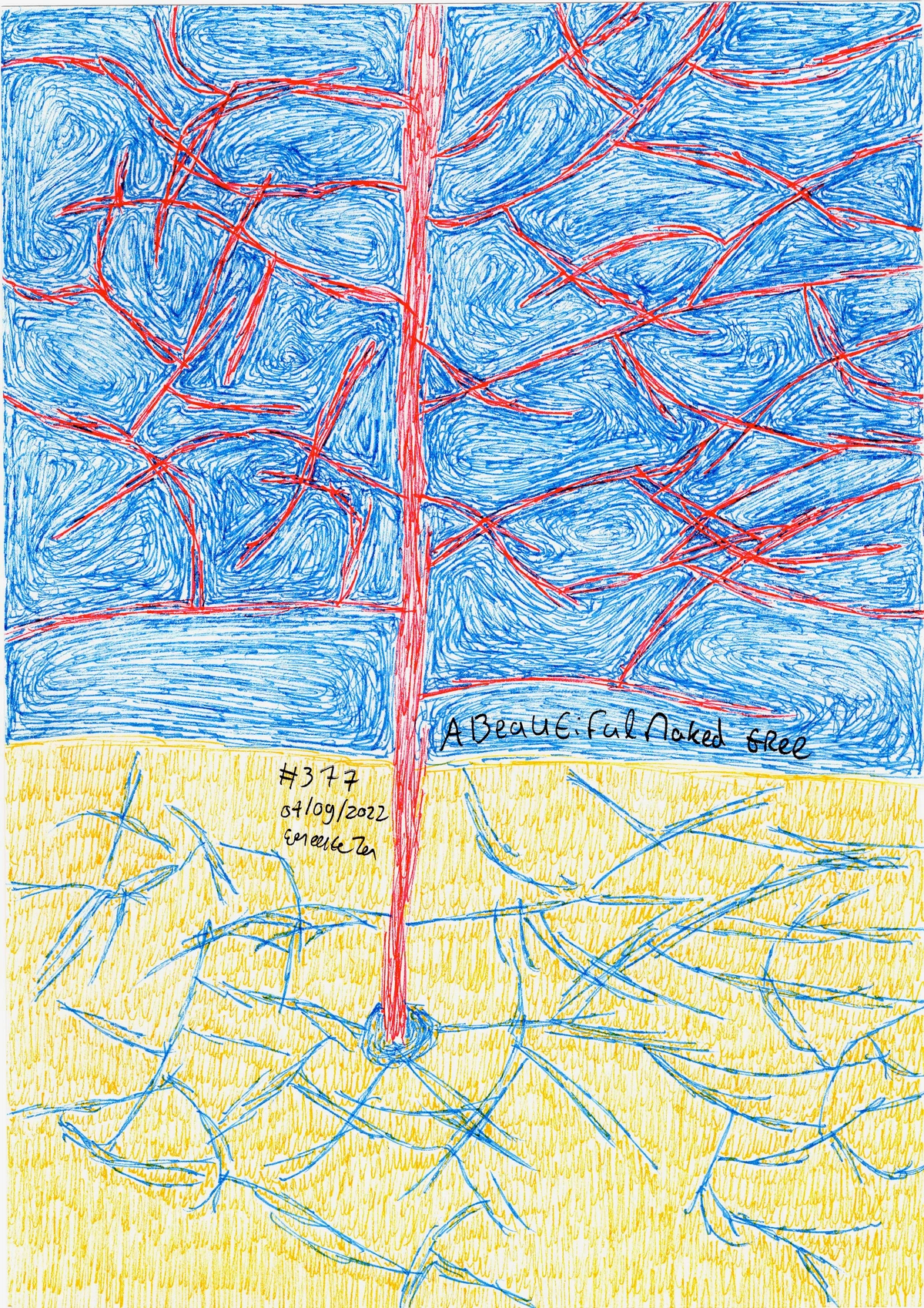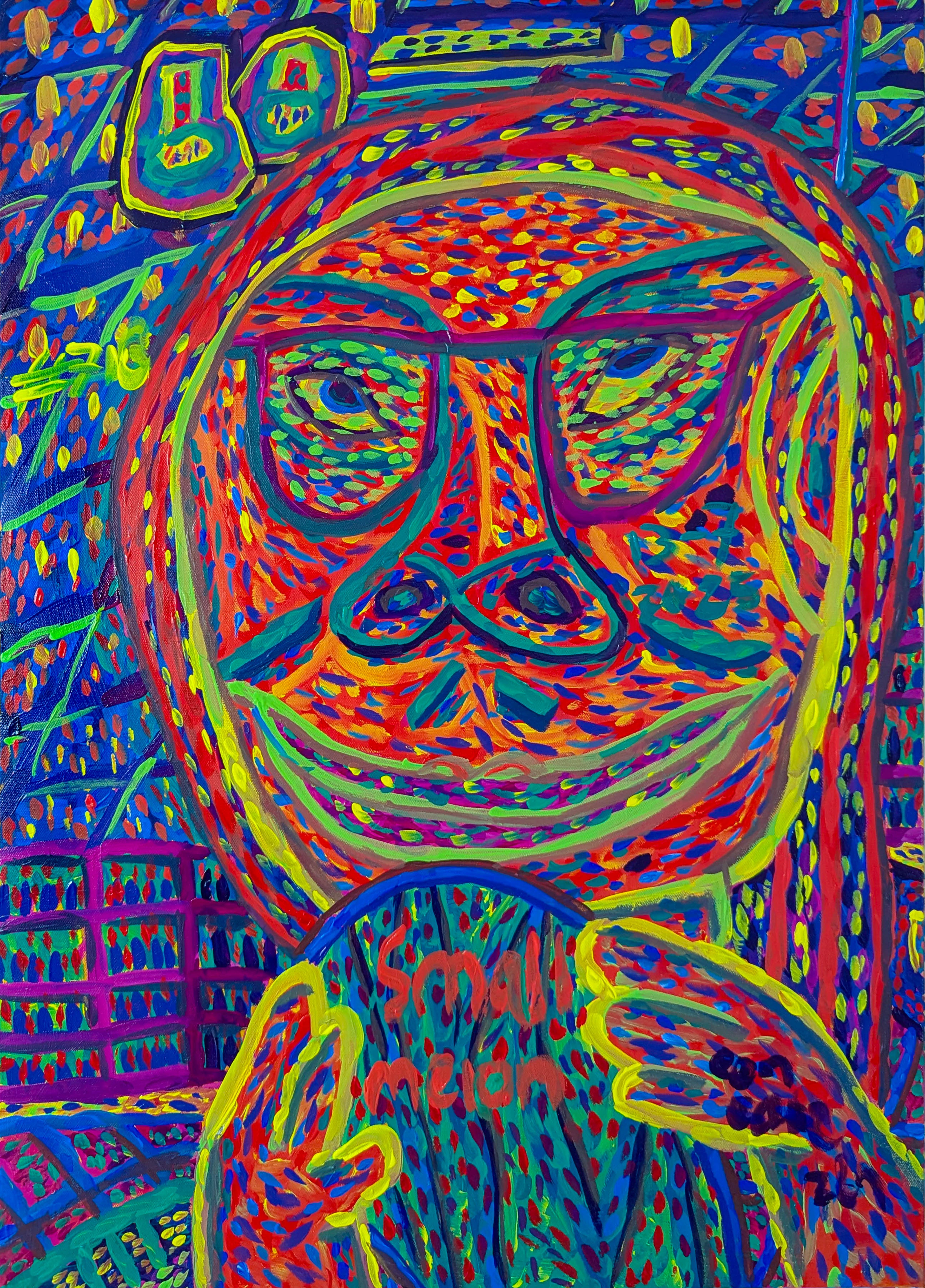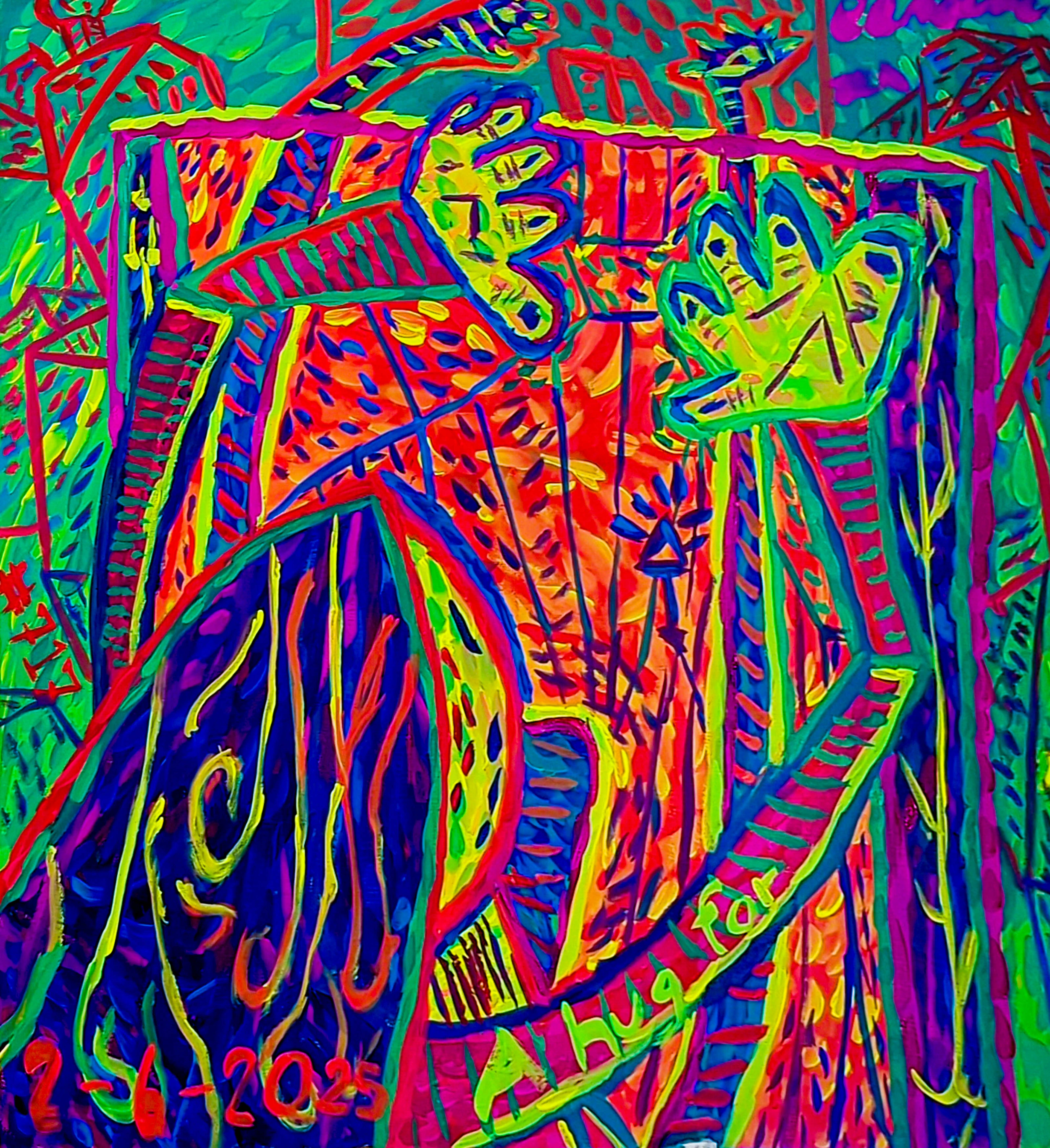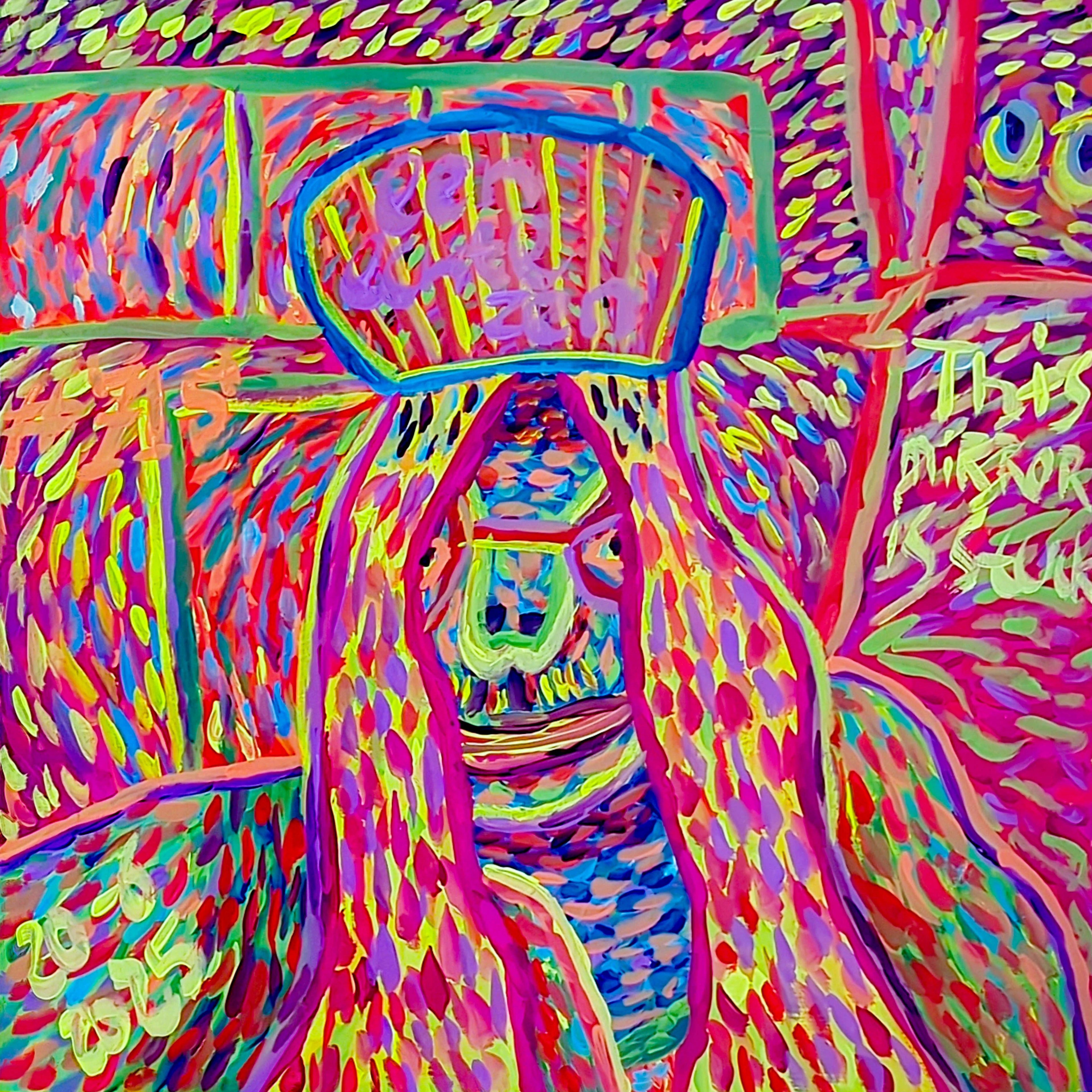
My Personal Journey into Watercolor: Essential Techniques for Beginners
Discover basic watercolor techniques like washes, wet-on-wet, and dry brush through my personal guide. Learn essentials, embrace imperfection, and start your fluid art journey.
My Personal Journey into Watercolor: Essential Techniques for Beginners
Ah, watercolor. The word itself brings forth images of delicate florals, shimmering landscapes, or, for a complete beginner like me, an intimidating, unruly pool of pigment. For so long, I admired watercolor from a distance, convinced it was reserved for the steadiest hands and the most serene dispositions. My artistic path often gravitates towards the bold and abstract, a world of dynamic layers and rich texture. Yet, a quiet, persistent whisper always drew me to watercolor's inherent fluidity and captivating luminosity. Its history, dating back to ancient Egypt and popularized by masters like Albrecht Dürer, shows it's a medium that has always held a unique place in art, offering a delicate yet powerful expressive range.
Eventually, my intense curiosity – and perhaps a touch of that artistic stubbornness I've come to know so well – won out. I finally decided to dip my toes, or more accurately, my brush, into this notoriously unpredictable medium. What I unearthed wasn't merely a collection of techniques, but a profound philosophy of relinquishing control, embracing the unforeseen, and discovering profound beauty in the gentle, vibrant chaos that water and pigment orchestrate. If you've ever felt that subtle invitation to explore watercolor, consider this your decisive nudge – and my highly personal, sometimes wonderfully clumsy, roadmap through its basic landscapes.
First Strokes: Gathering Your Essentials (Without Breaking the Bank)
Embarking on any new creative pursuit, especially art, can easily lead to overwhelming feelings when faced with the sheer volume of supplies. Believe me, I've been there, paralyzed in front of towering shelves, agonizing over whether I truy needed that precise shade of cerulean or that famously expensive squirrel mop brush. (Spoiler alert: for now, you most definitely do not need it, and that's perfectly okay).
For our purposes, we're keeping things blissfully simple, because the real magic, the true heart of watercolor, resides in the technique itself, not in a ten-thousand-dollar palette. Here's my personal go-to list for beginners:
- Paints: A basic set of pan watercolors is an excellent starting point. They're convenient, portable, and perfect for learning. Alternatively, if you're feeling a bit more adventurous, a few tubes of primary colors (red, blue, yellow) offer more intense pigment and are great for larger washes. Pans are generally easier to control for beginners, while tubes allow for more vibrant, direct color application. You absolutely don't need artist-grade fancy stuff right off the bat; a student set is more than adequate to learn about color mixing and how the paint behaves on paper.
- Paper: This is arguably where you should not skimp. Quality watercolor paper is specially engineered to endure substantial amounts of water without warping or buckling into what I affectionately call a "sad piece of toast." Look for cold-press paper, ideally 140lb (300gsm) or heavier. Cold-press has a lovely texture that helps the paint adhere and creates beautiful effects, and its weight prevents excessive buckling, keeping your art looking crisp.
- Brushes: Start with just a couple: one small round brush for intricate details and finer lines, and one medium round brush for broader strokes and general application. Adding a flat wash brush can be useful for covering larger areas evenly. Again, simple synthetic or natural blend brushes are perfectly fine; no need for anything extravagant.
- Water: Two containers are ideal – one for vigorously rinsing your dirty brushes, and another for pristine, clean water to meticulously mix with your paints. This simple dual-container system is absolutely essential, unless, of course, you're intentionally aiming for perpetually muddy and murky colors (and who truly is?).
- Palette: A ceramic plate, a dedicated plastic palette, or even a repurposed lid from an old container will work wonders for mixing your colors.
- Paper Towels/Sponge: Indispensable for blotting excess water from your brushes, lifting unwanted paint, or creating intriguing textures.
See? Not so daunting after all! It's less about the gleaming tools and more about the courageous act of putting brush to paper and letting the water lead the way.
The Dance of Water and Pigment: Essential Techniques
Now, for the truly exhilarating part – diving into the fundamental techniques that are the very bedrock of nearly every watercolor painting. Consider these your initial, tentative dance steps; they might feel a little awkward and clumsy at first, but with dedicated practice, they will seamlessly become second nature, allowing your creative flow to truly take over and express itself.
1. Washes: The Foundation of Fluidity
Washes are essentially broad, smooth, and often transparent applications of color. They are the quiet, atmospheric background music of your painting, subtly setting the mood and defining the light.
- Flat Wash: The goal here is a perfectly smooth, consistent layer of color, without streaks or puddles. My first few attempts often resembled a topographical map of a particularly lumpy alien planet, rather than a serene sky. The key? A generously loaded brush, sufficient water, and swift, decisive strokes. Load your brush with a consistent mixture, create a horizontal stroke, then immediately create another overlapping stroke just below it, allowing the bead of paint at the bottom of the first stroke to be pulled into the second. Continue this rhythmic motion until your desired area is uniformly covered. Try it: Practice painting a flat, even sky on a small piece of paper.
- Graded Wash: This technique involves a beautiful, seamless transition of color, typically from dark to light (or one color blending into another). Begin with a concentrated mix, make your initial stroke, then gradually add more clean water to your brush (or less paint, depending on the effect) with each subsequent stroke, blending gently as you descend. It's like crafting a miniature, ephemeral watercolor sunset, right there on your paper. Try it: Create a simple sunset gradient, fading from a vibrant orange to a soft yellow.
2. Wet-on-Wet: Embracing the Beautiful Chaos
This is where watercolor truly bursts into vibrant life, and where you consciously choose to surrender a measure of control. It's also the realm where some of my most delightful (and occasionally most gloriously disastrous) surprises have spontaneously blossomed.
- How it Works: First, apply a clean, even layer of water to the specific area of your paper where you want the magic to happen. Ensure the paper is uniformly wet and shimmering, but absolutely not pooling. Then, with a wet brush laden with paint, gently introduce the pigment into that pre-wetted area. The paint will, as if by enchantment, spread, bloom, and bleed softly into the water, conjuring breathtakingly organic edges and exquisite, often unpredictable, color blends. It’s truly like observing a private magic show unfold before your very eyes.
- When to Use It: This technique is utterly perfect for painting expansive skies, soft, ethereal backgrounds, creating captivating atmospheric effects, or simply when you wish to playfully explore what fascinating interactions might occur (which, let's be honest, constitutes at least half the sheer joy of watercolor). Remember, embracing accidents and evolution is not just a philosophy here; it's the very essence of the technique. Try it: Paint a soft, cloudy sky by dropping blues and grays into a wet area.

Unknown, Unknown
It’s interesting how watercolor’s inherent spontaneity often mirrors the very spirit of abstract expression, which I also explore in my work. The way colors organically bleed and merge on a wet surface can create unexpected dialogues, much like the unplanned layers in an abstract painting. This medium, in its beautiful unpredictability, becomes a collaborator in the artistic process, rather than just a tool.
3. Wet-on-Dry / Layering: Building Depth (with a Dash of Patience)
This technique stands in delightful contrast to wet-on-wet, offering significantly more control and the ability to achieve crisp, defined edges. It's the foundational method for meticulously building up complexity and profound depth within your painting.
- How it Works: The premise is simple yet powerful: apply a layer of paint to completely dry paper (or to a previous layer that has had ample time to dry thoroughly). This deliberate approach creates a distinct edge, allowing the new layer to settle transparently atop the old, resulting in richer, more luminous colors and a wonderful sense of dimension. It’s akin to carefully stacking numerous translucent colored sheets, each one contributing to the overall vibrancy without obscuring what lies beneath.
- When to Use It: This is your go-to for adding precise details, creating strong, definitive lines, or patiently building up deep, glowing colors through successive, transparent glazes. Imagine adding intricate shadows to a leaf, defining the sharp edge of a distant mountain, or meticulously layering glazes to achieve the vibrant tones found in a still life. This is also where understanding how artists use color becomes an incredibly potent tool in your creative arsenal. Try it: After a wash dries, paint crisp lines or shapes on top to add detail to a landscape or object.
4. Dry Brush: Adding Texture and Zing
When your painting yearns for a bit of tactile grit, a wonderfully rough texture, or a shimmering, almost sparkling highlight, the dry brush technique emerges as your most trusted ally. It's consistently my personal favorite for injecting that subtle, yet undeniably impactful something that transforms a flat, unassuming area into a vibrant, living element.
- How it Works: The trick is in the minimal moisture. Get just a tiny amount of water on your brush, load it with paint, and then carefully blot almost all the moisture off with a paper towel until the brush is merely damp – almost dry, but not quite. Then, gently drag the brush lightly across the textured surface of your watercolor paper. The paint, by design, will catch only on the raised parts of the paper's texture, creating a wonderfully broken, expressive line or a captivating, textured area.
- When to Use It: This technique is superb for simulating rugged textures like the weathered bark of an ancient tree, creating the impression of distant, hazy foliage, rendering the sparkling glint of light on water, or adding a palpable sense of movement and energy to your composition. Try it: Create the textured bark of a tree or the shimmering surface of water using a dry brush.
5. Lifting: The "Oops" Button (or a Creative Tool!)
We all have those moments – perhaps you've inadvertently applied too much color, or you're specifically aiming to create a radiant highlight. In such instances, the lifting technique reveals itself as your secret, surprisingly versatile weapon.
- How it Works: While the paint is still wet and workable, act swiftly: gently blot the area with a clean, barely damp brush (almost dry, to absorb rather than spread) or a carefully scrunched-up paper towel. For lifting pigment from a dry area, re-wet the specific spot with a clean, wet brush, allow a few seconds for the water to reactivate the pigment, and then carefully blot to lift the color. The key is gentle pressure and a clean, absorbent tool.
- When to Use It: This technique is invaluable for subtly lightening an area, meticulously creating soft, luminous highlights (such as the ethereal way light reflects off water or a glint in an eye), or for gracefully correcting those minor missteps that inevitably occur. Try it: Lift paint from a still-wet wash to create soft clouds or to lighten a specific area.
My Thoughts on the Journey: Embracing the Process
Let's be unequivocally real here: no one, not a single soul, picks up a watercolor brush for the very first time and instantly conjures a masterpiece worthy of a museum. My own early attempts were, let's just say, "profound learning experiences" – often more akin to chaotic science experiments than intentional art. But that, dear reader, is precisely where the profound beauty lies. Every single wobbly wash, every accidental bloom, every unexpected blend teaches you something invaluable. It reveals insights about the capricious nature of the medium, the subtle nuances of your own hand, and perhaps most importantly, it cultivates the often-elusive virtue of patience.
I frequently reflect upon my broader creative journey, from concept to canvas, and how intrinsically it is tied to embracing the sprawling, unpredictable process rather than fixating solely on the elusive, perfect outcome. Watercolor, with its inherent and glorious unpredictability, stands as an unparalleled teacher in this regard. It doesn't just invite you; it gently compels you to respond, to adapt, and to engage in a collaborative dance with the water itself. And sometimes, just sometimes, it bestows upon you a truly serendipitous "happy accident" – a moment of unexpected magic that far surpasses anything you could have meticulously planned or painstakingly executed. I remember once trying to paint a subtle background wash, only for a rogue drop of water to fall, creating a brilliant, star-like bloom. Instead of despairing, I leaned into it, adding more deliberate (yet still spontaneous) drops, and the piece became a cosmic explosion of color. It reminded me that the most beautiful art often emerges from the dialogue between intention and pure chance.
Don't be afraid to fill entire pages with nothing but experimental washes, or to practice wet-on-wet blooms until you truly grasp the mesmerizing way the paint gracefully moves and interacts. Think of these pages as your personal timeline of artistic growth and discovery, each mark a step forward.
My Humble Advice for Aspiring Watercolorists
Navigating the wonderfully fluid world of watercolor can feel like learning to swim in a sparkling, yet occasionally turbulent, ocean. Here are my most humble, yet earnestly delivered, pieces of advice to help you keep your head above water and find your unique rhythm:
- Embrace Imperfection: Watercolor, at its glorious heart, is fundamentally not about achieving perfectly rendered lines or exact, photorealistic replication. It is, instead, a profound celebration of light, of transparency, and of the exquisitely beautiful, often surprising, ways colors can mingle and dance. Please, do not beat yourself up if your initial attempts don't immediately conform to what you imagine as "right." Remember, the power of imperfection is a very real, very liberating force, especially within this medium.
- Play, Play, Play: Dedicate specific, joyful sessions purely to uninhibited experimentation. Mix the most unusual, unexpected colors you can imagine, try painting with your non-dominant hand just to feel the difference, or see precisely how much water you can coax onto the paper before it stages a full-blown rebellion. The more you playfully explore and experiment, the deeper your intuitive understanding of this captivating medium will become.
- Observe Light: Watercolor has an almost magical ability to capture and convey the essence of light. Cultivate a keen eye: pay close attention to how light naturally interacts with objects in real life, how it meticulously creates complex shadows, and how colors subtly, yet dramatically, shift under varying illumination. This observation will profoundly enrich your paintings.
- Let It Dry (Seriously): This is, without a shadow of a doubt, the single hardest rule for impatient artists (and yes, I count myself firmly among them!). Resist, with every fiber of your being, the almost irresistible urge to add another layer or to even gently touch a wet area until it is completely and utterly dry. I cannot stress this enough. Your colors will remain vibrant, clear, and distinct, and you will, most assuredly, thank me later.
- Find Your Joy: Ultimately, the creation of art should always, always be a source of profound enjoyment and personal fulfillment. If a particular technique isn't resonating with you, or feels like a struggle, simply pivot and try another. If all you desire is to paint vibrant, expressive blobs of color just for the sheer pleasure of it, then by all means, paint those magnificent blobs! There exists no single "right" or "wrong" path to discovering and embracing true pleasure in the artistic process.
Perhaps after getting a feel for these fundamental techniques, you'll be inspired to venture forth and create your own uniquely vibrant pieces. And who knows, maybe one day you'll even be looking to buy art that resonates with a similar spirit of artistic discovery and personal expression, perhaps even visiting an artist's museum, like the one in 's-Hertogenbosch, to see masterworks firsthand. What is one technique you're most excited to try first, and what kind of "happy accidents" are you open to embracing?
Frequently Asked Questions About Basic Watercolor
Q: What's the biggest mistake beginners make in watercolor?
A: Usually, using too little water, which leads to dull, flat colors instead of luminous ones, or not letting layers dry completely between applications. Impatience between layers is the arch-nemesis of clear, vibrant watercolor, often resulting in muddy, overworked hues.
Q: How do I keep my paper from buckling?
A: The most effective defense against buckling is to invest in good quality, heavy watercolor paper (140lb/300gsm or more). For extra security, you can also "stretch" your paper by taping it down to a rigid board (like a drawing board or a piece of plywood) with artist's tape or painter's tape before you begin. This allows it to dry flat and taut.
Q: Can I mix watercolor with other mediums?
A: Absolutely! Watercolor is remarkably versatile and frequently used in mixed media alongside other materials such as pens, colored pencils, pastels, or even acrylics (often as a base layer). The crucial rule is to always ensure your watercolor layer is completely dry before introducing other mediums to prevent smudging or unwanted reactivating of the pigment.
Q: How do I fix a mistake?
A: Ah, the eternal question! That's both the singular beauty and the compelling challenge of watercolor. While you can often gently lift some pigment (especially if it's still wet), watercolor is largely about learning to work with what happens. Sometimes, what initially appears to be a "mistake" can, with a shift in perspective, be artfully integrated into the overall design, leading to a truly unique and unexpected outcome. Embrace the journey and the spontaneous evolution!
The Unfolding Canvas of Creativity
Stepping into the ethereal world of watercolor is much like embarking on the journey of learning a new, beautifully expressive language – the language of fluidity, of light, and of joyous serendipity. It patiently asks for your unwavering patience, generously rewards every brave act of experimentation, and more often than not, it gracefully teaches you far more profound truths about yourself than it does simply about painting. From my own humble, often wrestling-match beginnings with unruly washes, to eventually discovering a harmonious rhythm with the enchanting dance of wet-on-wet blooms, it has been an exhilarating and deeply personal journey of continuous discovery.
So, gather your brushes, select a few vibrant dabs of paint, and cultivate a boundless willingness to simply play. The water, in its infinite wisdom and gentle power, is patiently waiting to reveal its inherent magic to you. Your unique creative journey, much like a breathtaking watercolor itself, is exquisitely ready to unfold.




